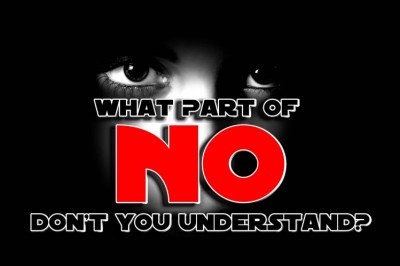Things Insurance Companies and Judges Dont Want You to Know About Personal Injury Claims
The number of secrets behind the closed doors of insurance companies and judges changers are enormous. This is only the tip of the iceberg. 1. Delay, Delay, Delay. A common strategy of insurance companies when a person suffers a car accident or truck accident injury is to delay your case as much as possible. This before a lawsuit and after a lawsuit. The reason for the delay is to discourage claimants from pursuing a claim, to hurt the claimants case, and to keep the money as long as possible. Delay can be effective in decreasing the number of car accident claimants that pursue a claim. The strategy often works in other type of claims as well including car accident property damage, fire damage a home, or water damage to a home, or other claims. In my experience the number of claimants that give up on a case is small, but for an insurance company the tiny number adds up quickly and can mean millions in unpaid claims. Soon after an accident some insurance companies call the victim and request a recorded statement. They often tell the accident victim not to worry, because they will pay for everything. The adjuster will often guide the case along and keep reassuring the claimant. When the statute of limitations the insurance carrier would inform the claimant that they would not pay anything. Most claimants did not have the time to find an attorney to represent them and attorneys often decline to accept cases on a rush basis. When California had a one year statute of limitations the strategy often worked well and claimants often lost their case, especially the ones that wanted to avoid hiring an attorney. Contact with the car accident victim and reassuring the car accident injury victim is means of harming the claimants case. I have had instances when claimants call me two or three months after the fact seeking representation for medical treatment. The common reason for why no medical treatment was sought is that they believed the insurance company would assign them to a doctor or send them a check. In one case two weeks after the car accident, the claimant had suffered some serious injuries, but he really believed the insurance company would take care of everything and kept checking his mailbox for a check. He even decided to check his mailbox one last time before hiring my firm, convinced a check would be arriving so he could go see the doctor. The reason the insurance companies do this is to keep car accident claimants from seeking medical care right away. The car accident claimant is required to mitigate his damages, meaning he (or she) is supposed to minimize his own damages. A typical car accident claimant will claim medical expenses, lost wages, and pain and suffering. If the car accident claimant fails to see a medical doctor not only is his credibility harmed, but he (or she)caused his injuries to worsen and he (or she)suffered longer than necessary. This is how insurance companies pretend to be on your side and then hurt you. 2. Recorded statements. Some insurance companies respond as quickly as possible after an accident and contact the car accident or truck accident claimant and take a recorded statement. The car accident victim is victimized twice. The reason is that most injuries are soft tissue injuries, meaning they relate to muscle sprains, tears, and other non objectively verifiable injuries. These type of injuries often take a few hours before they start causing pain. These type of injuries are similar to hard physical work or a tough workout when you are out of shape. If you are out of shape or have not exercised for a long time, you may be able to do a lot of strenuous activity, but the next day you may find that you cannot get out of bed. Soft tissue injuries from car, truck, and bus accidents an even slip and falls are very much the same and you may not feel any pain for several hours or until the next day. Sometimes it may take a couple of days. The insurance adjuster will naturally record your statement and ask if you were injured. If it is a soft tissue there is a chance you will not feel anything until at the time of the call. 3. The physics of a collision. The biggest lie in car accidents that insurance defense attorneys, insurance hired experts, and insurance companies put out for jurors is that minimal impact collisions cause no injury. The reality is that it depends, there may or may not be an injury, but if the vehicle is an old car or truck, chances are the claimant is injured and badly so. A low impact collision can cause great harm to the car accident claimant. It is basic physics and many text books describe in detail the reasons for why a low impact car accident can cause great physical harm. The irony is that jurors believe that great car damage means great bodily harm, but the design of newer cars is such that the impact will be observed by the car and therefore protect the body. Insurance companies sponsor unscientific studies from time to time and then cite these studies in courts throughout the country. They often hire doctors and engineers calling themselves biomechanical engineers. These doctors and engineers are the same people called to trial over and over again. The reason is money, big money, some of these engineers make as much as $500,000 to $1 million a year and the same is true of these doctors. You can call any personal injury attorneys at random, and ask if they know who are the defense doctors and you will find they will give you the same responses time after time. 4. Experts. When you serve as a juror you will notice that some of the so called experts are fantastic. They are entertaining, animated, and smooth as can be. These so called experts are experts in testimony. Their job is to testify and be credible. If they looked too polished is because they are. Some of these experts have been to trial more than most attorneys. As stated earlier, the reason is money, big money, some of these engineers make as much as $500,000 to $1 million a year and the same is true of these doctors. A treating doctor is generally not an expert and rarely testifies, jurors will see them stumble and see that they are disorganized. Defense experts are always hired, they are obviously not treating doctors. If you are lucky, you might get to see one say "My opinion is not for sale !" Experts are often depose before going to trial. Depositions are a process where they are asked questions under penalty of perjury before a court reporter. Defense experts contradict themselves as evidenced by the deposition transcripts and court transcripts from prior trials, they have perjured themselves repeatedly, but are rarely sanctioned by the courts. No fines, no jail time, no payback of any kind, and they still get to keep their $500,000 to $1 million a year. 5. The offer in compromise. The California legislature created a powerful tool to push cases to settlement. It is called an offer in compromise. It is a tool where the insurance company can offer to settle the case as well as the car accident claimant. If the defendant offers say $1 to the plaintiff and the plaintiff believes a jury trial will result in a greater verdict, but the jury decides to award no money damages, then the car accident victim is victimized a second time. This because the car accident victim is now liable under the Civil Code to the insurance company for all the money the insurance company paid the doctor and the engineer as well as court reporter fees, jury fees, witness fees, and other associated fees. Judges do not want you to know this ! 6. The defendant. In the vast majority of cases involving a car accident lawsuit, the defendant is really the insurance company and sometimes it is a big company. Personal injury attorneys do not like to sue uninsured persons and do not like to go after the assets of people. Most defendants are sorry and want to pay, but their insurance companies do not. It is a long tedious, stressful process for the accident victim as well as the culprit and the culprit generally wants to pay and get it done and over with, but the insurance company forces the culprit to go through the process. 7. Jury Verdicts. Big business and insurance companies have characterized jury verdicts as "run away jury verdicts," and they have been very successful in making personal injury attorneys and car accident claimants, as well as other personal injury claimants, look like they are greedy. The truth is that most jury verdicts are not very big. Many cases are under $25,000.00 and the average settlement is around $7,000.00. About half of a settlement goes to doctors and sometimes neither the attorney nor the car accident claimant get anything. The reason is that there are lots of costs associated with a lawsuit, the actual doctor bills, the cost of hiring the doctor to testify for the treatment provided, the court reporter fees, deposition fees, witness fees, motion fees, court fees, jury fees, copy service fees. Each and every expense is high. Many attorneys decline to accept small cases, simply because it is a losing proposition for the attorney. Almost all personal injury attorneys accept cases on a contingency fee basis and more than half the time, they take their own money and advance the costs of litigation, it is not unusual for personal injury attorneys to take out loans to finance bigger cases where there are many doctors involved and where experts are hired. So, personal injury attorneys must wait sometimes years before they get paid, if at all. The only winners in car accident litigation is the defense attorney and the experts. The experts do extremely well as does the defense attorney. Defense attorneys get paid often up front for the work they do, regardless of the outcome of the case, usually around $250 an hour and somewhere in the $30,000 to $250,000 range per trial. When a jury comes back with a large verdict the judge often reduces it. When there are punitive damages, meaning an award to make an example out of the defendant, it can not exceed certain standards. If damages intended to make the person whole, which is the whole purpose of personal injury, are X then punitive damages cannot exceed about 6X, or six times the compensatory damages. For the big companies such as the auto companies that have engaged in some really bad behavior in past, this is usually a drop in the bucket. The $1 million awarded and $6 million in punitive is nothing in comparison to the annual profits of the company. Even though a jury might be extremely upset with the behavior of the defendant and award a lot in punitive damages, the judge will often cut the award and if not the defendant will appeal it. A car accident victim is just that a victim, he (or she) has not won the lottery and at best will be put back to where he (or she) should have been if the accident had not occurred. It is the intent of the law to put the person back to where he (or she) should have been. New Port Richey Law firm






















